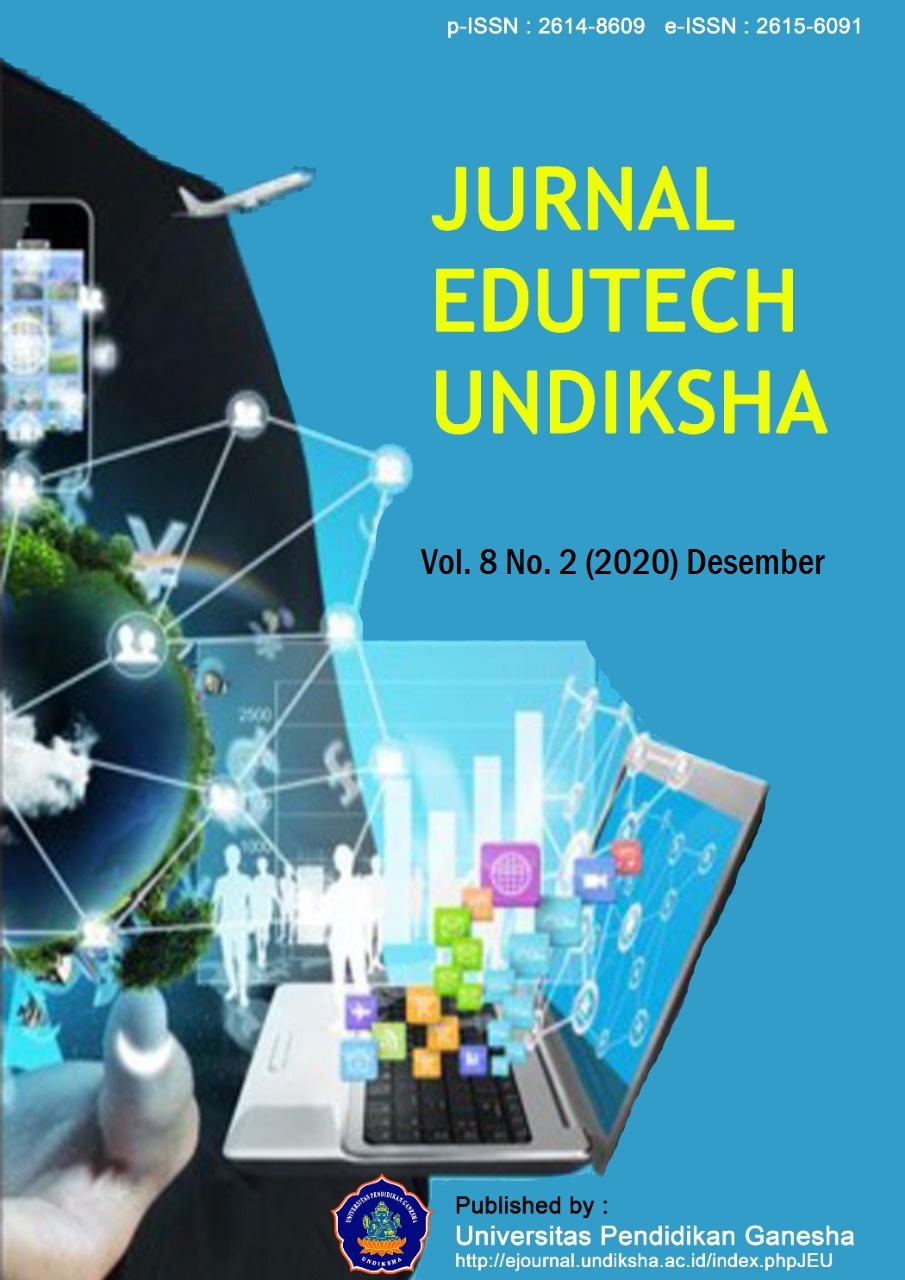Peran Model Pembelajaran Giving Question and Getting Answers Berbantuan Media Powerpoint terhadap Kompetensi Pengetahuan PPKn
DOI:
https://doi.org/10.23887/jeu.v8i2.28964Abstract
Penelitian ini bertujuan untuk menganalisi pengaruh yang signifikan model pembelajaran Giving Question And Getting Answers berbantuan media powerpoint terhadap kompetensi pengetahuan PPKn siswa kelas IV SD. Penelitian ini adalah penelitian eksperimen semu, menggunakan nonequivalent control group design. Populasi penelitian terdiri dari 9 kelas SD kelas IV dengan sampel 36 siswa sebagai kelompok eksperimen, dan 32 siswa sebagai kelompok kontrol. Data dari kompetensi pengetahuan PPKn dikumpulkan dengan tes objektif. Hasil rata-rata gain skor pretest dan posttest kompetensi pengetahuan PPKn menunjukkan kelompok eksperimen memperoleh hasil 0,655 lebih tinggi dari rata-rata kompetensi pengetahuan PPKn kelas kontrol yaitu 0,538. Data kompetensi pengetahuan PPKn dianalisis memakai uji-t polled varians. Hasil analisis dengan uji-t menunjukkan thitung = 2,053 > ttabel = 1,997. Jadi, terdapat perbedaan yang signifikan kompetensi pengetahuan PPKn kelompok siswa yang dibelajarkan menggunakan model pembelajaran Giving Question and Getting Answers berbantuan media powerpoint dengan kelompok siswa yang dibelajarkan menggunakan pembelajaran konvensional pada kelas IV SD. Dengan demikian, model pembelajaran Giving Question And Getting Answers berbantuan media powerpoint berpengaruh terhadap kompetensi pengetahuan PPKn siswa kelas IV SD.Downloads
Published
2020-09-30
How to Cite
Widiantari, N. M., Sri Asri, I. G. A. A., & Oka Negara, I. G. A. (2020). Peran Model Pembelajaran Giving Question and Getting Answers Berbantuan Media Powerpoint terhadap Kompetensi Pengetahuan PPKn. Jurnal Edutech Undiksha, 8(2), 107–119. https://doi.org/10.23887/jeu.v8i2.28964
Issue
Section
Articles
License
Authors who publish with the Jurnal EDUTECH Undiksha agree to the following terms:
- Authors retain copyright and grant the journal the right of first publication with the work simultaneously licensed under a Creative Commons Attribution License (CC BY-SA 4.0) that allows others to share the work with an acknowledgment of the work's authorship and initial publication in this journal.
- Authors are able to enter into separate, additional contractual arrangements for the non-exclusive distribution of the journal's published version of the work (e.g., post it to an institutional repository or publish it in a book), with an acknowledgment of its initial publication in this journal.
- Authors are permitted and encouraged to post their work online (e.g., in institutional repositories or on their website) prior to and during the submission process, as it can lead to productive exchanges, as well as earlier and greater citation of published work. (See The Effect of Open Access)









